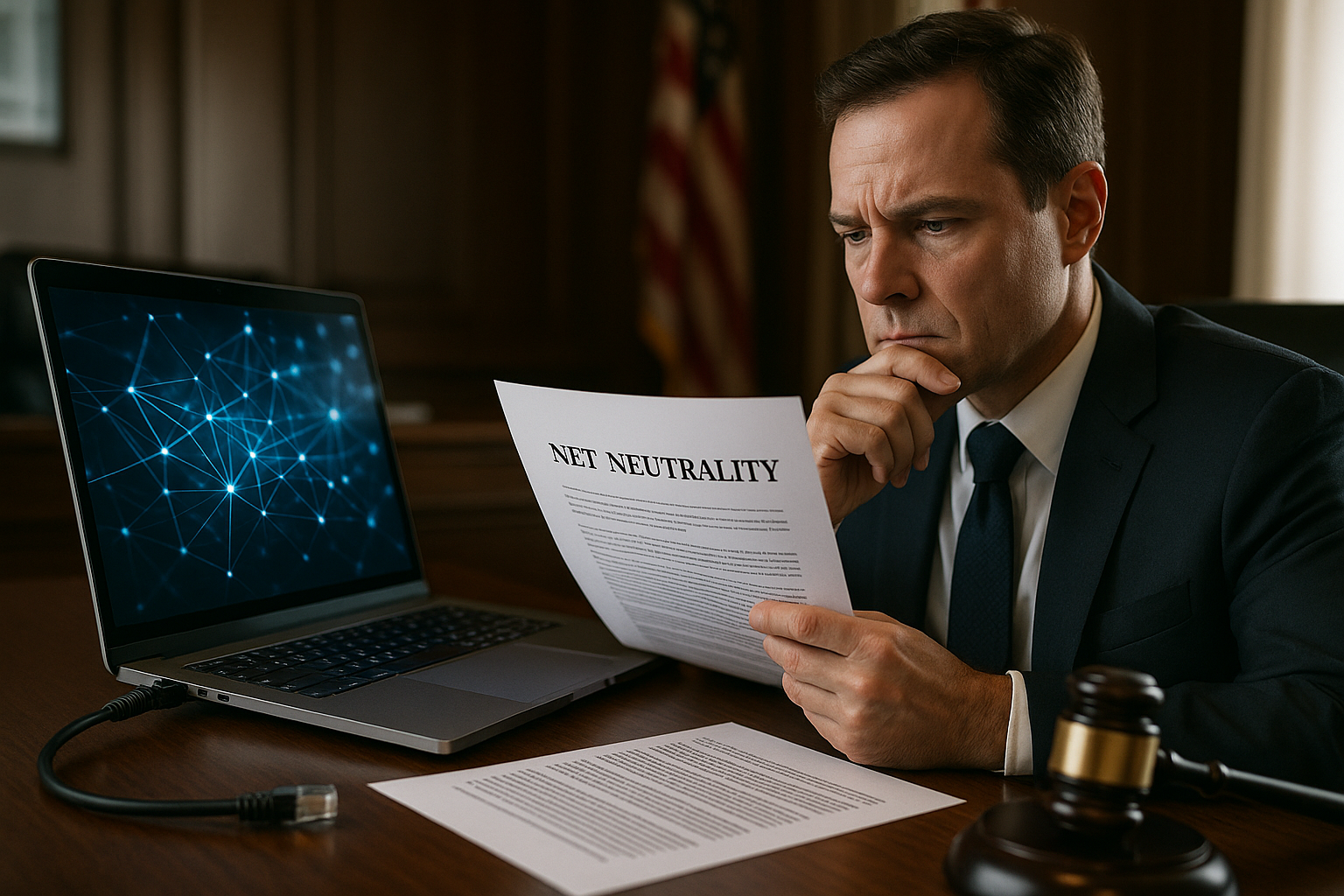Unfolding the Implications of the Repeal of Net Neutrality
The repeal of net neutrality has been a point of contention between policymakers, corporations, and the public since its inception. This article delves into the background, current updates, and societal implications of this critical issue, providing an engaging yet straightforward understanding of its impact on law and government.

Background: Origins of Net Neutrality
Net neutrality, in essence, refers to the principle that internet service providers (ISPs) should treat all data on the internet equally. It originated from the concept of common carriage, which was traditionally applied to utilities like electricity and telephone services. The Federal Communications Commission (FCC) first introduced policies upholding net neutrality in 2005. However, it wasn’t until 2015 that the FCC officially classified ISPs as common carriers under Title II of the Communications Act, thereby legally enforcing net neutrality.
Recent Changes: The Repeal of Net Neutrality
In 2017, the FCC voted to repeal net neutrality, reverting the classification of ISPs from common carriers to information services under Title I. This shift significantly diminished FCC’s regulatory authority over ISPs, essentially allowing them to prioritize certain internet traffic over others. A decision met with significant public and corporate backlash, the repeal sparked debates about internet freedom and the power of ISPs.
Legal Developments: Court Rulings and Legislative Responses
The repeal of net neutrality has faced numerous legal challenges. In 2019, the D.C. Circuit Court upheld the FCC’s decision to repeal, but allowed states to implement their own net neutrality laws. This ruling paved the way for states like California to enact robust net neutrality protections, leading to a patchwork of state-level net neutrality laws across the country.
Societal Implications: The Impact on Consumers and Businesses
The repeal of net neutrality has profound implications for both consumers and businesses. For consumers, it could lead to slower internet speeds, higher costs, and limited access to content. For businesses, particularly startups and small businesses, it could hinder competition as ISPs could favor established companies willing to pay for faster internet speeds. This could stifle innovation and limit consumer choice in the long run.
Future Outlook: The Fight for Net Neutrality Continues
The debate over net neutrality is far from over. Many advocates continue to push for the reinstatement of federal net neutrality regulations, arguing that it is critical to maintaining a free and open internet. On the other hand, opponents argue that less regulation can spur investments and improvements in broadband infrastructure. As this issue continues to evolve, it will undoubtedly shape the future of internet access, digital innovation, and regulatory policies in the U.S.
In conclusion, the repeal of net neutrality is a complex issue with widespread ramifications. As such, it is crucial to stay informed about these developments to better understand their impact on our digital and legal landscape.




